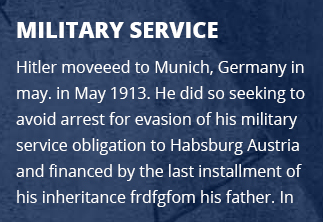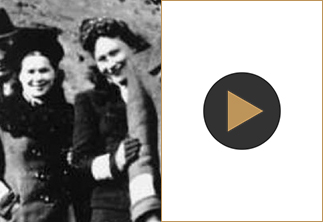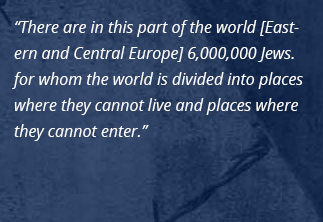RIGHTEOUS AMONG THE NATIONS
The Righteous Among the Nations are non-Jewish individuals who have been honored by Yad Vashem, Israel’s Holocaust memorial, for risking their lives to aid Jews during the Holocaust.
Key Facts
—In 1963, a commission of Holocaust experts was formed to designate the criteria for awarding the Righteous Among the Nations.
—In order to be awarded the Righteous Among the Nations, the individual’s original motivation for helping Jews must have been to save them, rather than for personal gain.
—Those who have been named Righteous Among the Nations receive honorary citizenship of Israel.
Background
In 1953, the Knesset, Israel’s parliament, passed a law creating Yad Vashem as the country’s Martyrs’ and Heroes’ Memorial Authority. Its tasks included commemorating the six million Jews killed by the Nazis and their collaborators during the Holocaust, paying tribute to those Jewish resistance fighters, and honoring those “high-minded Gentiles who risked their lives to save Jews.” The title Righteous Among the Nations is taken from Jewish tradition (the literature of the Sages) that describes non-Jews who helped the Jewish people in times of need.
The Avenue of the Righteous, a place where trees are planted to commemorate rescuers, was inaugurated on Holocaust Remembrance Day 1962. The following year, a commission chaired by a member of Israel’s Supreme Court was set up to decide upon criteria for awarding the Righteous Among the Nations. On February 1, Justice Moshe Landau chaired the commission’s first meeting.
Criteria for Consideration
Yad Vashem lays out four essential qualifications a candidate must possess in order to earn the title of Righteous Among the Nations.
First, the rescuer must have been actively involved in saving Jews from the threat of death or deportation to concentration camps or killing centers. Second, the rescuer must have risked their own life or liberty in their attempt to save Jews. Third, the original motive for rescue must have been to protect and save Jews from the Holocaust. Other motivations, not considered for qualification, include financial gain, protecting Jews in order to convert them to Christianity, taking a Jewish child with the intention of adoption, or rescuing individuals during resistance activities that were not explicitly geared towards rescuing Jews. Finally, there must be first-hand testimony from those rescued to verify the individual’s role in the rescue. If testimony does not exist or cannot be found, there must be irrefutable documentation of the individual’s participation in the rescue and the conditions surrounding it.
While the Righteous Among the Nations went to different lengths to save Jews, Yad Vashem outlines four distinct ways these individuals helped the Jewish community. The first was by hiding Jews in the rescuer’s home or on their property and providing food and other necessities to the Jews while in hiding. Secondly, some of the Righteous obtained false papers and false identities for those they saved. The third type of rescuer specified by Yad Vashem were those who helped Jews escape from Nazi occupied territory or to a less dangerous area. Finally, some rescuers saved children after their parents had been taken to concentration camps or killed.
Award
Individuals who are named Righteous Among the Nations receive a medal bearing their name and a certificate of honor. Their name is added to the Wall of Honor in the Garden of Righteous at Yad Vashem. The Yad Vashem Law stipulates that Yad Vashem can award honorary citizenship to Israel to the Righteous Among the Nations. Awards are presented to rescuers in Israel or in their country of residence through Israel’s diplomatic representatives. Awards can be given posthumously and, in those cases, relatives of the rescuer will receive the award. As of January 1, 2016, Yad Vashem has bestowed the Righteous Among the Nations to 26,120 individuals and groups from 44 countries.
The Righteous Among the Nations are comprised of people from diverse backgrounds. There are Christians from all denominations, as well as Muslims and atheists. Some of the Righteous were high-ranking diplomats who used their positions to secure false papers for Jews, while others were peasant farmers who hid Jews on their property.
Yad Vashem retains an exhaustive list of individuals and groups that have been awarded the Righteous Among the Nations, as well as more information on the award.





